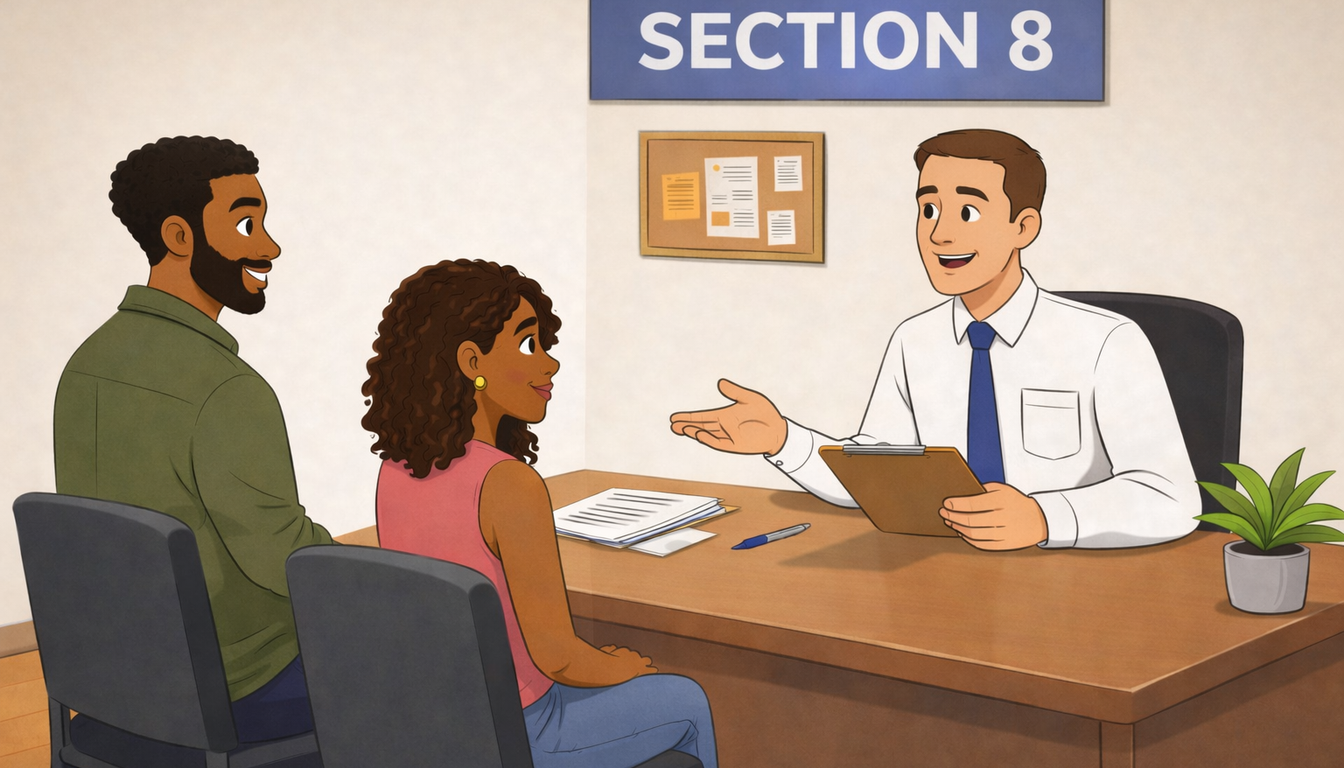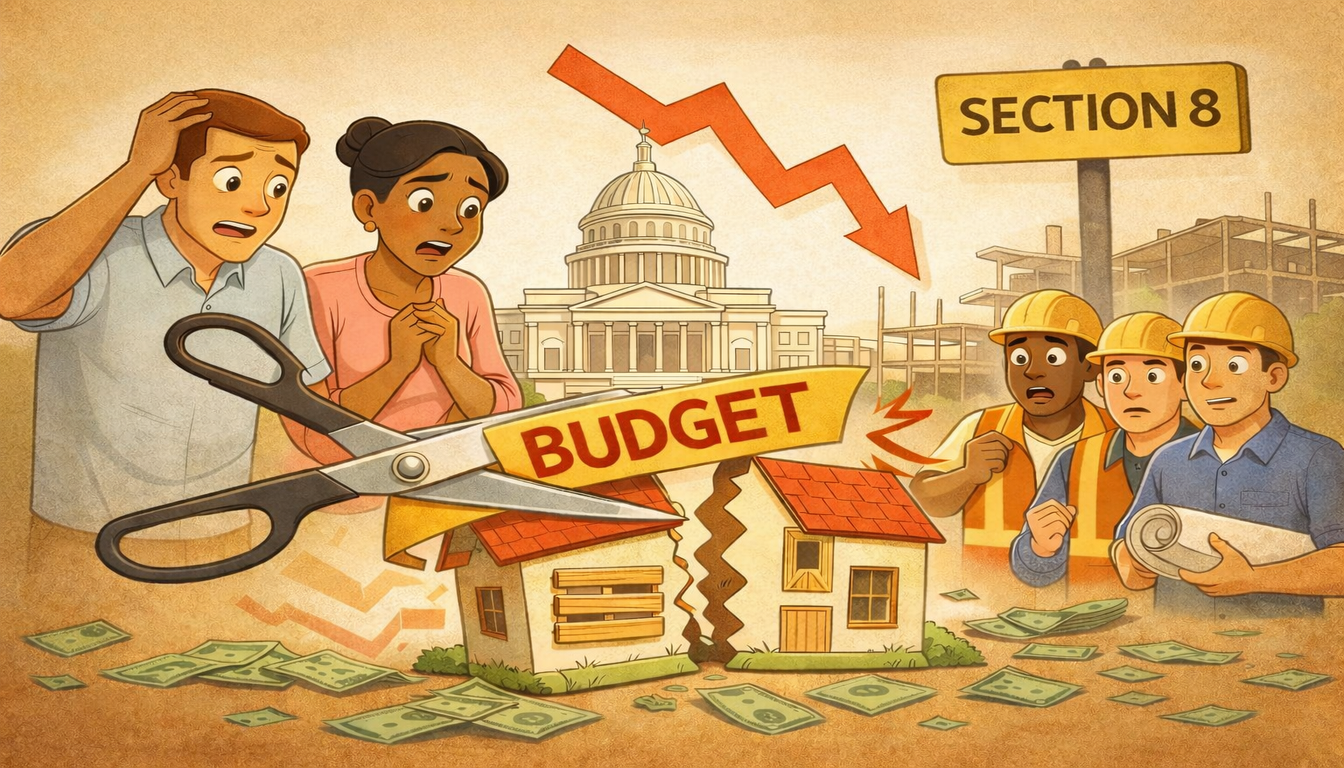
Why Section 8 Denials Happen and the Secrets to Winning Your Appeal
Getting a Section 8 application denied can feel like a huge setback, especially when affordable housing is so hard to find. However, it's not the end of the road. Many applicants face denials but eventually succeed by understanding why their application was denied and taking the right steps to fix the issue.
In this guide, we'll walk you through the most common reasons for Section 8 denials, how to appeal the decision, and tips to increase your chances of approval. We'll also provide helpful links to other resources on the Section 8 Search blog to support you throughout the process.
Why Was My Section 8 Application Denied?
Section 8 housing is a government program with strict requirements. Your application may have been denied for one of the following reasons:
1. Incomplete Application
Missing documents or failing to provide accurate information is a common reason for denial. Double-check your application to ensure all sections are filled out correctly.
2. Income Issues
The program is designed for low-income individuals and families, so exceeding income limits for your area can lead to denial. Use tools like HUD's income limit calculator to verify your eligibility.
3. Criminal Record
Certain criminal convictions, such as drug-related offenses or violent crimes, may disqualify you from Section 8 eligibility.
4. Poor Rental History
If you've been evicted or owe money to a previous landlord, it could hurt your chances. Providing proof of resolved issues can help.
5. Missing Deadlines
If you missed important deadlines for submitting forms or attending interviews, your application may be denied. Staying organized is key.
What to Do If Your Application is Denied
A denial isn't final. You can take steps to appeal the decision or reapply. Here's how:
Step 1: Understand the Reason for Denial
Start by reviewing the denial letter sent by your local Public Housing Agency (PHA). This letter will explain the reason for the denial and whether you're eligible for an appeal.
If you're unsure about the denial terms, contact your local PHA directly for clarification. You can also check out our guide, "How to Check Your Section 8 Status", to understand more about the process.
Step 2: File an Appeal
You have the right to appeal a Section 8 denial. Follow these steps:
-
Act Quickly: Appeals usually need to be filed within 10-30 days of receiving the denial letter.
-
Gather Evidence: Collect documents to support your case, such as proof of income, references from landlords, or evidence of cleared criminal records.
-
Request a Hearing: Most PHAs allow applicants to request an informal hearing where you can present your case.
Check out our resource, "Section 8 Housing: Building Better Neighborhoods", for insights into the program's goals and how your appeal can align with them.
Step 3: Fix the Issues
If your denial was due to an error, missing paperwork, or something you can correct, take immediate action. For example:
-
If you were denied for incomplete information, provide the missing details.
-
If your income exceeded limits, wait for a change in your financial situation and reapply.
How to Strengthen Your Next Application
Whether you're reapplying or appealing, here are some ways to improve your chances:
1. Stay Organized
Keep track of deadlines, required documents, and communications with your PHA. Use a checklist to ensure you don't miss anything.
2. Build a Strong Rental History
If you've had issues with landlords in the past, resolve them before reapplying. A letter of recommendation from a current landlord can make a big difference.
3. Address Criminal Record Issues
If your application was denied due to a criminal record, consider applying to a PHA with less restrictive policies. You can also look into expunging eligible offenses.
4. Verify Income Eligibility
Double-check the income limits for your area on HUD's website. If you're close to the threshold, ensure all deductions (e.g., childcare, medical expenses) are accurately reported.
5. Seek Help
Nonprofit organizations, housing advocates, and legal aid groups can provide guidance. Check out our article, "The Top Housing Non-Profits: Get the Help You Need", for a list of helpful organizations.
What If I Still Can't Get Approved?
Section 8 isn't the only option for affordable housing. If your application is repeatedly denied, consider these alternatives:
1. Low-Income Housing Tax Credit (LIHTC) Properties
These properties offer reduced rent for low-income families. Visit our article, "How to Find Affordable Housing Options", to learn more.
2. Section 811 and Section 202 Programs
If you're elderly or disabled, programs like Section 811 and Section 202 may be a better fit. Read our guides:
3. Private Assistance Programs
Local charities, churches, and community organizations often have housing assistance programs. Look into these options if federal programs aren't working out.
4. Rent-to-Own Programs
Rent-to-own arrangements can be a path to homeownership. Read more in our article, "How Rent-to-Own Works with Section 8".
Frequently Asked Questions
Can I Reapply After a Denial?
Yes! You can reapply if your circumstances change or the issue that led to the denial is resolved.
What Happens at an Appeal Hearing?
During an appeal, you'll present your case to a PHA representative. Bring all supporting documents and explain why you believe the denial was a mistake.
How Long Does the Appeal Process Take?
It depends on the PHA, but most decisions are made within a few weeks.
Will a Denial Affect My Credit?
No, a Section 8 denial won't directly impact your credit score. However, unresolved rental issues could harm your rental history.
Final Thoughts
Getting your Section 8 application denied can feel like a major hurdle, but it doesn't have to be the end of your journey. By understanding why your application was denied, filing an appeal, and strengthening your next application, you can improve your chances of approval.
Remember, there are plenty of resources to help you along the way. Start by exploring other helpful guides on the Section 8 Search blog to make the process easier. Don't give up---affordable housing is within reach with the right steps and support.
Navigating the Section 8 housing process can feel overwhelming, and that's where Section 8 Search comes in. We're more than just a listing website; we're a dedicated resource designed to make finding housing under the Housing Choice Voucher Program straightforward and stress-free. Our platform offers user-friendly tools to explore listings and waiting list statuses nationwide, all built on official HUD data. We're also passionate about providing clear, helpful information and guidance, empowering you with the knowledge you need to understand eligibility, complete your application, and confidently navigate your housing journey.





.png)
.png)
.jpg)



.png)
.png)
.png)





.png)
.png)